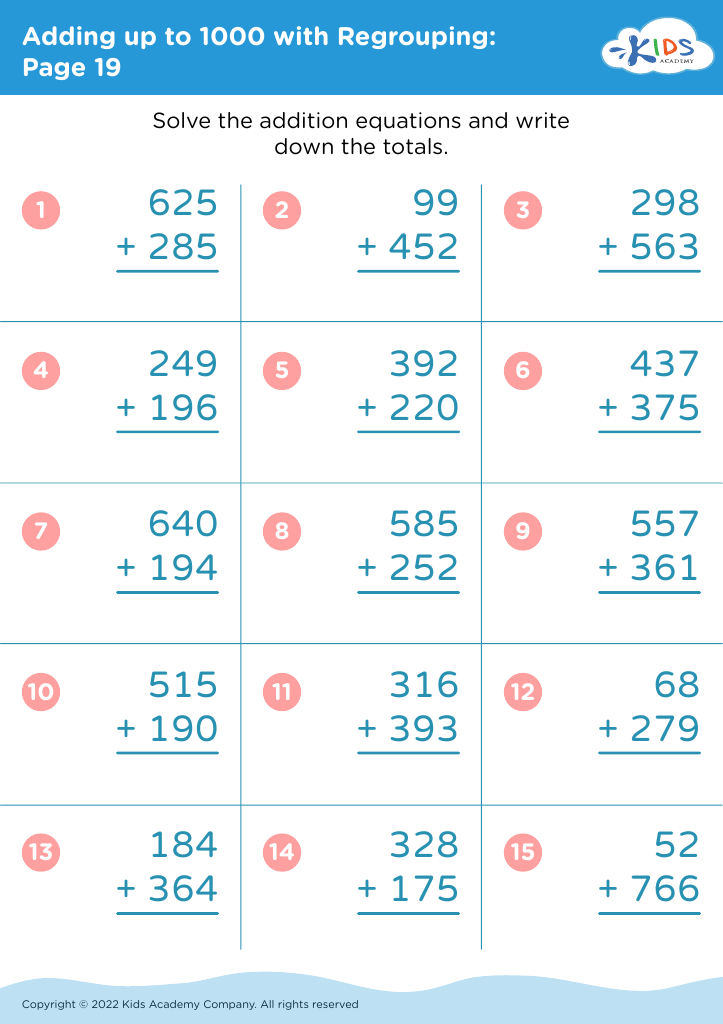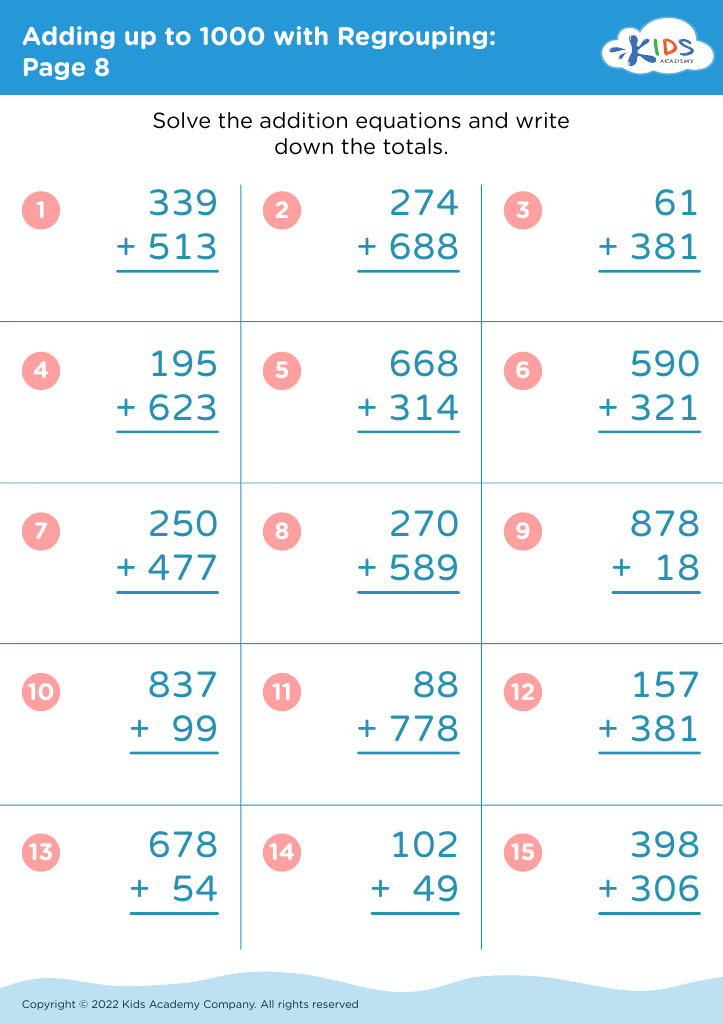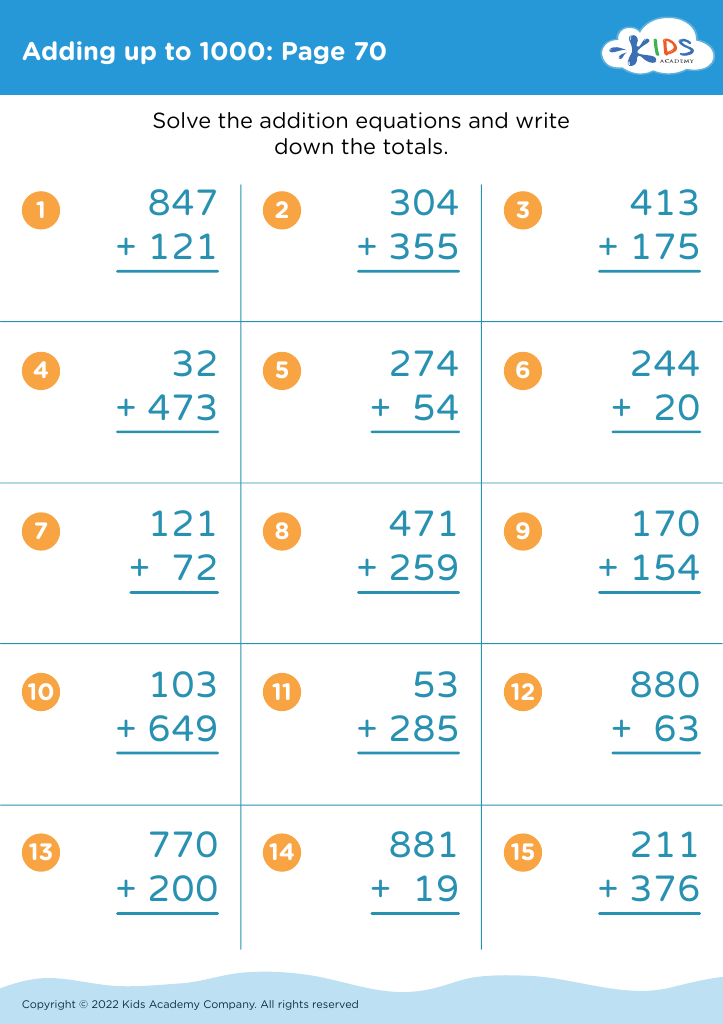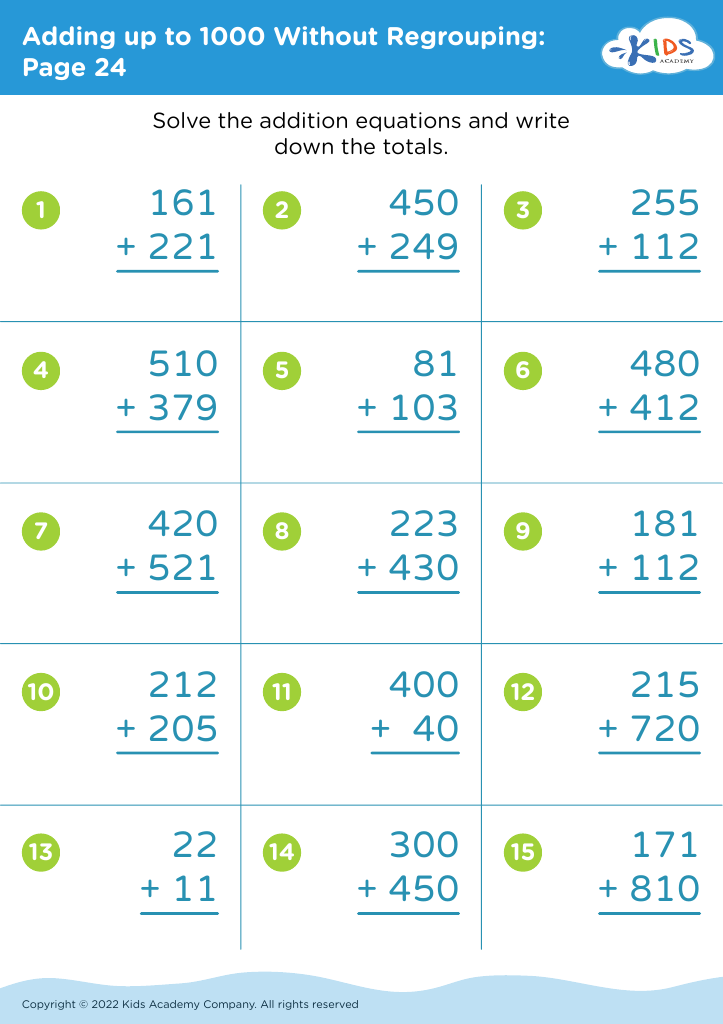Improving math skills Adding up to 1000 Worksheets for Ages 3-8
6 filtered results
-
From - To
Unlock the potential of your child's mathematical abilities with our comprehensive "Improving Math Skills Adding up to 1000 Worksheets for Ages 3-8." The carefully designed worksheets engage young learners with fun, interactive exercises that make mastering addition a breeze. Step-by-step guidance and visually appealing activities foster a strong foundation in math, ensuring your child gains confidence and proficiency in adding numbers up to 1000. Ideal for ages 3-8, these worksheets are perfect for both classroom and at-home learning. Watch your child's skills soar as they embark on a captivating journey to become math champions! Visit Kids Academy to get started now.
Math skills are essential for young children's cognitive development and future academic success. Enhancing math abilities, particularly with skills like adding numbers up to 1000, can be highly beneficial for children aged 3-8 for several reasons.
Firstly, early math proficiency lays the groundwork for understanding more complicated mathematical concepts later. Children who develop strong arithmetic skills young are better prepared to tackle advanced subjects like algebra, geometry, and calculus.
Secondly, math is integral to everyday life. Whether it involves time management, shopping, or even cooking, a strong foundation in basic math can help children navigate daily tasks more efficiently.
Math also promotes critical thinking and problem-solving skills. Learning to add, subtract, and manipulate numbers sharpens a child's ability to think logically and solve problems. This ability is not only beneficial in academics but also in life scenarios that require thoughtful decision-making.
Additionally, early success in math can boost a child's confidence and foster a positive attitude toward learning. Struggling with basic arithmetic can be frustrating and may lead to negative self-perception and a dislike for the subject.
Lastly, math skills are crucial for future job opportunities. Many careers, especially in science, technology, engineering, and math (STEM) fields, require strong numerical abilities.
In conclusion, building strong math skills up to 1000 for ages 3-8 equips children with essential tools for academic success, daily life, and future career opportunities, and promotes overall cognitive development.























